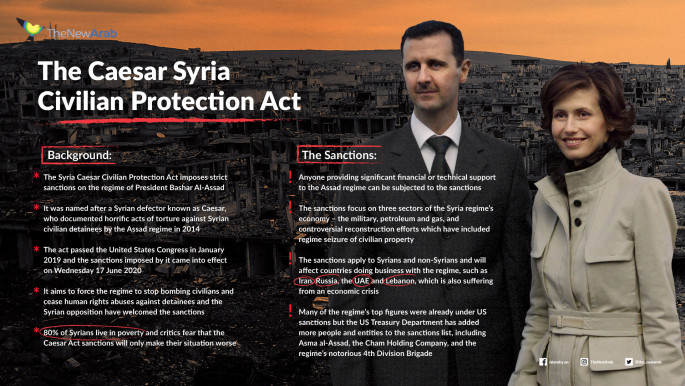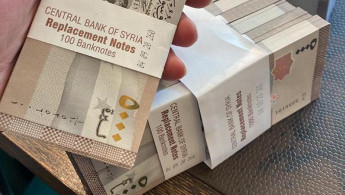Syrian regime introduces 5,000 lira bank note, exacerbating spiralling inflation
The Syrian regime has introduced a new 5,000 lira banknote, a sign of the country's major economic crisis and spiralling inflation.
This is the highest currency denomination ever introduced in Syria's history, even though the real worth of the note is only about $1.70.
Syrian traders have reported that the introduction of the new banknote has caused prices to rise even further.
The Syrian national currency lost most of its value over the course of the country's ten year conflict, reaching unprecedented lows last year.
In early 2011, approximately 50 liras were worth one US dollar, while today the black market exchange rate is around 2,900 liras to the US dollar, with an official exchange rate of 1,256 liras to the dollar.
Read more: Charting the dramatic collapse of Syria's national currency
"The time is right, based on the current economic conditions, to introduce the new currency denomination," the Syrian Central Bank said in a statement.
|
|
It added that the new note had been in print for two years. Previously the highest value Syrian banknote in circulation had been the 2,000 lira note, which was introduced in 2017 after a previous bout of inflation.
The Central Bank said that introducing the 5,000 lira note would allow "gradual removal of damaged notes, particularly because wear and tear has increased recently".
Prices have increased and the Syrian lira has declined further against the dollar after news of the introduction of the note had become public, The New Arab’s affiliate Syria TV reported.
The price kilogram of sugar has increased from 1,500 to 1,800 liras, while the price of a litre of cooking oil had increased from 5,100 to 5,550 liras, traders told the channel.
Other basic commodities have also increased in price. Property prices in Syria also unexpectedly rose last week amid expectations that the new note would be introduced, Syria TV reported.
The Syrian Central Bank is also reportedly studying the introduction of a 10,000 Syrian lira note.
The Assad regime has blamed Syria's currency collapse on sanctions imposed by the US under the Syria Caesar Civilian Protection Act.
Read more: What is the Caesar Act and how will new US sanctions impact Syria?
The US, however, says that the sanctions specifically target the regime and not the Syrian people. The Syrian opposition has welcomed the sanctions which were imposed in response to atrocities committed by the regime against political detainees and other civilians.
Follow us on Facebook, Twitter and Instagram to stay connected





 Follow the Middle East's top stories in English at The New Arab on Google News
Follow the Middle East's top stories in English at The New Arab on Google News


